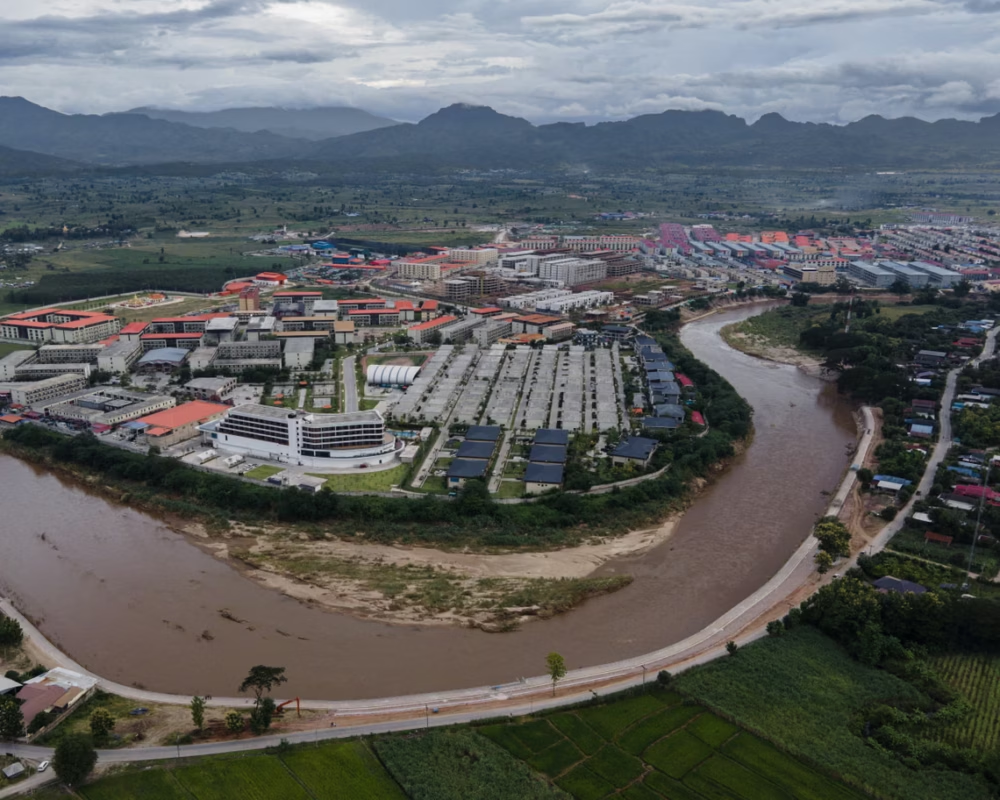
Scam Factories on the Thai–Myanmar Border: How Chinese Mafia Networks Operate
A High-Security Compound Disguised as Development
Just five years ago, the land along the Moei River near Myawaddy was empty fields. Today, it is home to KK Park — a sprawling 210-hectare (520-acre) complex complete with villas, restaurants, banks, and even a hospital. At first glance, it resembles a modern business campus. In reality, KK Park has become one of the region’s most notorious criminal hubs, at the heart of a multibillion-dollar online scam industry powered by human trafficking.
Myanmar as a Regional Hub for Transnational Crime
Similar scam compounds have appeared in Cambodia, Laos, and Myanmar, attracting global attention. Victims trafficked into these facilities are forced to run sophisticated online fraud schemes targeting people in the United States, Europe, China, and beyond.
Research by the Australian Strategic Policy Institute (ASPI) shows the number of scam centers along the Thai–Myanmar border has grown from 11 in 2021 to 27 today, expanding at a rate of 5.5 hectares per month.
Drone footage reveals ongoing construction at KK Park and other sites like Tai Chang and Shwe Kokko, despite international concern.
Human Trafficking and Cyber Slavery
Survivors describe conditions inside KK Park as harsh and violent:
Victims work up to 17 hours a day with no rest.
Those who resist face beatings, starvation, torture, or even death.
The UN estimates over 100,000 people are being held in scam centers across Myanmar.
Aaron, a young man from Africa, shared how a “dream job” offer lured him to Thailand, only to be trafficked across the border into KK Park under armed guard. His experience mirrors the stories of countless victims.
Local Enablers and Chinese Control
While the compounds operate on Myanmar soil, Chinese criminal networks are believed to be the masterminds. Survivors identified Border Guard Force (BGF) insignia on guards inside the compound, indicating local cooperation. But key decision-makers and financiers are reportedly Chinese nationals with strong regional networks.
Following the Money
Investigations have traced funds from scam victims into cryptocurrency wallets linked to KK Park. One such wallet was tied to Wang Yi Cheng, a Chinese businessman in Thailand. Wang, along with other overseas Chinese business figures, is believed to be part of a network connected to Wan Kuok Koi, also known as Broken Tooth — a notorious Chinese mafia leader.
Wan’s organizations have been sanctioned by the U.S. for criminal activities.
His networks also promote China’s Belt and Road Initiative (BRI), blending state-linked infrastructure projects with illicit business fronts.
A Growing Global Threat
Although Chinese authorities have distanced themselves from the compounds, the location of KK Park overlaps with areas targeted for BRI development, raising questions about blurred lines between legitimate and criminal investment.
Experts warn these networks are expanding across Southeast Asia, Africa, Europe, and North America, embedding themselves into local economies. Despite international crackdowns, enforcement has only begun to scratch the surface.
For more information
The Guardian
Related posts:
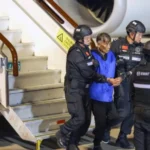 China Executes 5 from Myanmar Scam Gang in Fraud Crackdown
China Executes 5 from Myanmar Scam Gang in Fraud Crackdown
 UN Special Rapporteur Report on Myanmar Rights
UN Special Rapporteur Report on Myanmar Rights
 Myanmar junta fortifies Sittwe as AA nears Rakhine
Myanmar junta fortifies Sittwe as AA nears Rakhine
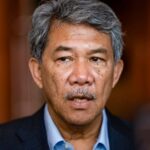 ASEAN to Decide on Myanmar Election Observers in 2025
ASEAN to Decide on Myanmar Election Observers in 2025
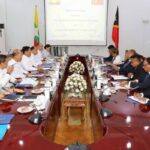 East Timor’s ASEAN Gamble: Mending Ties with Myanmar Junta
East Timor’s ASEAN Gamble: Mending Ties with Myanmar Junta
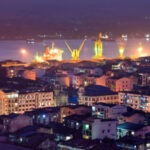 Myanmar’s Power Crisis: Energy Politics in the Dark
Myanmar’s Power Crisis: Energy Politics in the Dark
